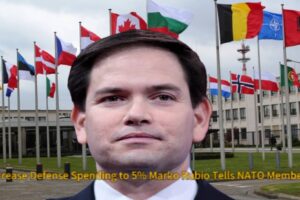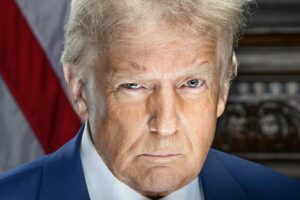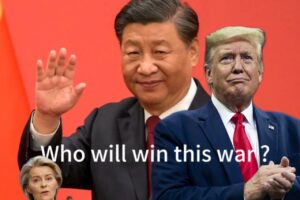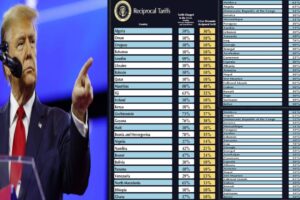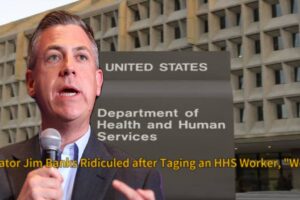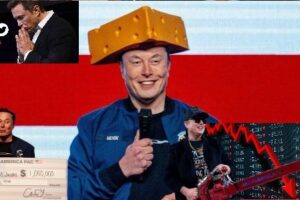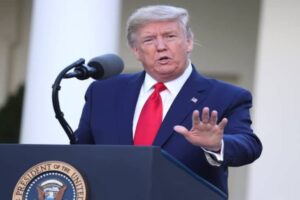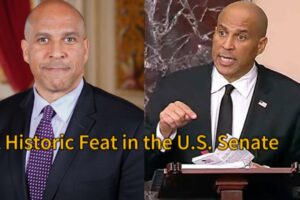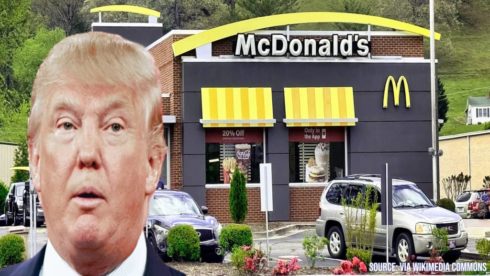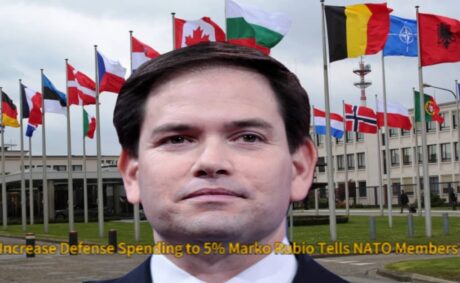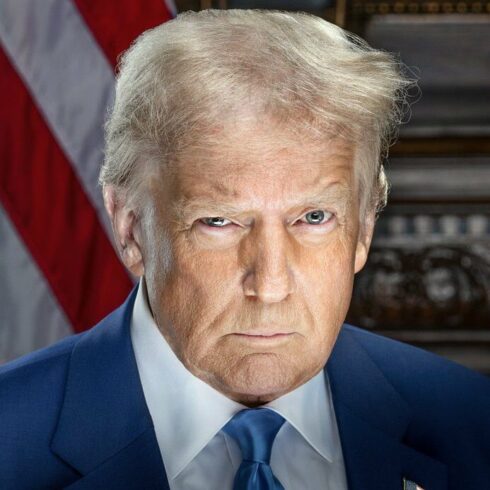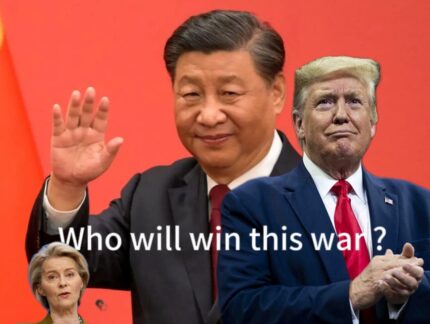McDonald’s announcement that it will not endorse former President Donald Trump enrages MAGA supporters, despite his recent appearance at one of their locations. Over the weekend, Donald Trump made a highly publicized visit to a McDonald’s, where he wore the uniform and handed out food in what critics have labeled a cheap public relations stunt. Donald Trump, who has faced accusations of exploiting workers throughout his career, seemed to be aiming to connect with working-class voters in a setting far removed from his luxurious lifestyle.
McDonald’s, however, swiftly released an official statement distancing itself from Donald Trump’s actions. “McDonald’s does not endorse candidates for elected office, and that remains true in this race for the next President. We are not red or blue — we are golden,” the statement read. MAGA supporters quickly took to social media, expressing frustration that the fast-food giant was not aligning with their preferred candidate, accusing the company of bias despite McDonald’s neutral stance.
McDonald’s Emphasizes Neutrality in Political Arena
In its public response, McDonald’s emphasized that its brand transcends political affiliations, insisting that it does not endorse any political candidate. “Our brand has been a fixture of conversation this election cycle. While we’ve not sought this, it’s a testament to how much McDonald’s resonates with so many Americans,” the company noted. By making clear its nonpartisan stance, McDonald’s aimed to defuse the politicization of its brand amidst heightened tensions.
The company’s assertion of neutrality, “we are not red or blue — we are golden,” highlights their desire to stay above the political fray. Despite this, Donald Trump’s use of the McDonald’s platform during his visit angered many who saw the act as a deliberate manipulation to gain political favor. The fast-food giant’s swift disavowal of political endorsements was seen as an attempt to protect its brand from further entanglement in divisive election discourse.
Donald Trump’s Attempt to Appeal to the Working Class Criticized
Donald Trump’s visit to McDonald’s was widely seen as an effort to appeal to blue-collar voters, a demographic that has often supported his populist rhetoric. Wearing the company’s uniform and handing out food, Donald Trump appeared to be trying to create an image of solidarity with working-class Americans. However, many critics pointed out the irony, given Donald Trump’s lifelong wealth and history of questionable labor practices, including allegations of wage theft and worker exploitation.
Critics quickly pounced on the PR stunt, calling it “pathetic” and “inauthentic,” and accusing Donald Trump of using the visit to further his personal political agenda. The move drew attention to the stark contrast between Donald Trump’s actions and the reality of his business practices, which include hiring low-wage workers while living a life of luxury. For many, his McDonald’s appearance only further highlighted the disconnect between his image and the reality of his policies toward working-class Americans.
Kamala Harris’ Genuine Ties to the Working Class Highlighted
In contrast to Donald Trump’s staged appearance, Vice President Kamala Harris has real, lived experience in the working-class community. Harris, who comes from a middle-class background, actually worked at McDonald’s during her youth. Her personal experiences with hourly wage labor give her a unique perspective on the challenges faced by workers in America, especially those in industries like fast food where wages are often low and job security is tenuous.
Supporters of Harris have emphasized her authenticity and commitment to addressing the needs of working-class Americans. Harris’ policies on raising the minimum wage, improving workers’ rights, and protecting unions have been cited as proof of her dedication to improving the lives of the very people Donald Trump tried to appeal to with his McDonald’s stunt. For many, Harris represents the candidate who will genuinely fight for the working class, rather than merely using them as props in a political spectacle.
Public Divided on McDonald’s Role in the Election
The incident has sparked a broader conversation about the role of corporations in politics, particularly in an increasingly polarized America. McDonald’s, as one of the largest and most recognizable brands in the world, finds itself in a tricky position. While the company seeks to remain politically neutral, its products and services often cater to the very working-class demographic Donald Trump and other politicians are eager to court.
Some consumers have praised McDonald’s for taking a firm stance on political neutrality, while others—especially MAGA supporters—believe the company’s refusal to back Donald Trump is a missed opportunity to align with his populist base. The fast-food giant, keen to maintain its massive customer base across the political spectrum, will likely continue to navigate these waters cautiously as the election season progresses.
Corporate Neutrality in Politics Faces Growing Scrutiny
As companies like McDonald’s strive to stay neutral in the political arena, they face increasing pressure from consumers and political figures alike. In the age of social media, where brands are often expected to take a stance on political and social issues, neutrality can be a challenging position to maintain. McDonald’s non-endorsement statement may have placated some, but for many Donald Trump supporters, it was seen as an implicit rejection of their candidate.
With businesses frequently becoming symbols in larger cultural battles, McDonald’s may continue to face scrutiny from both sides of the political divide. As election season heats up, the company’s decision to stay apolitical might be tested further, especially as candidates seek opportunities to associate themselves with brands that resonate with everyday Americans. Whether McDonald’s can maintain its golden neutrality in the face of these pressures remains to be seen.

